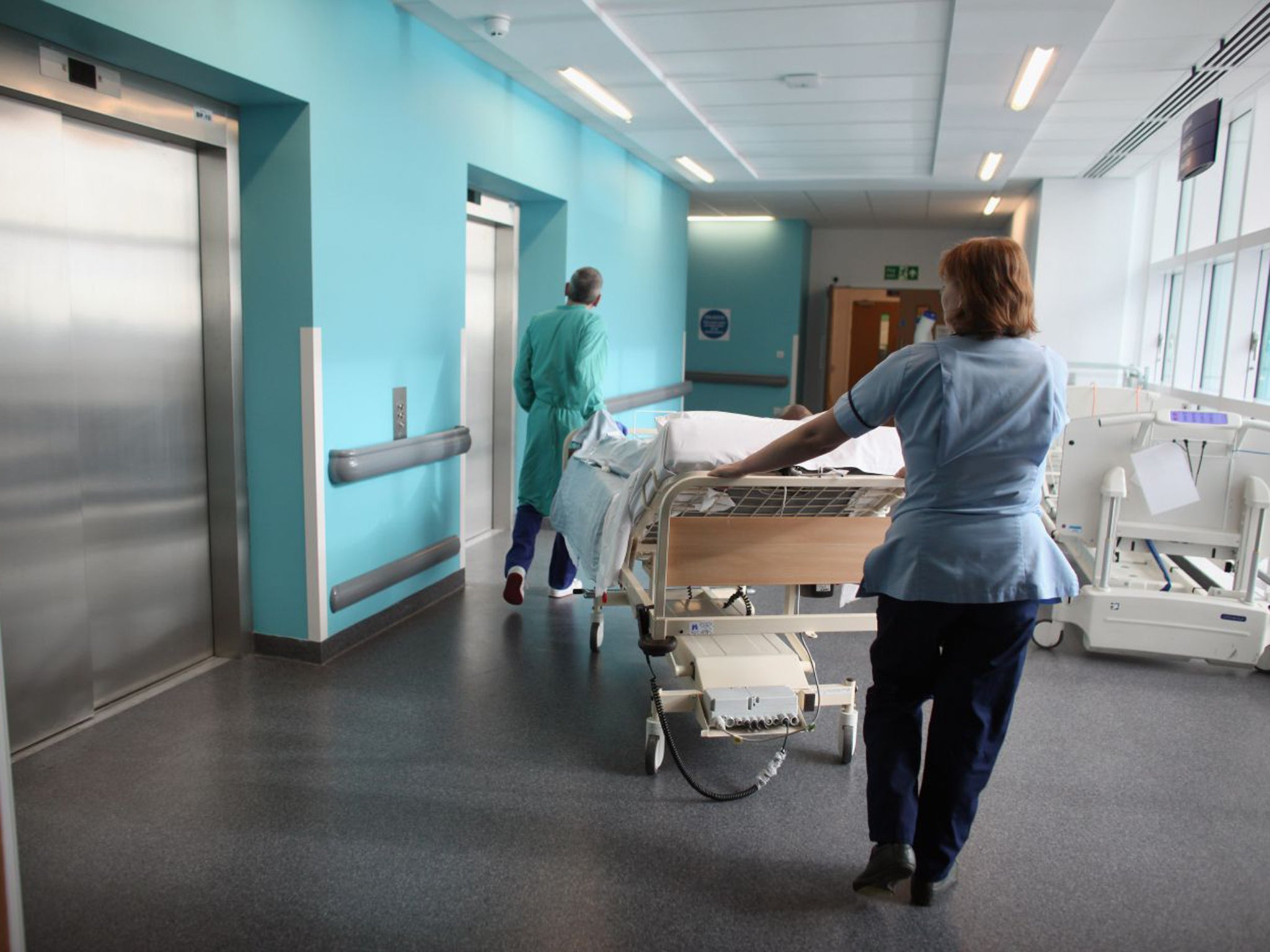Bedblocking: Delayed discharge from hospital costs NHS more than £300m
Opposition denounces ‘appalling’ new official statistics that show problems have escalated in the past six months

Your support helps us to tell the story
From reproductive rights to climate change to Big Tech, The Independent is on the ground when the story is developing. Whether it's investigating the financials of Elon Musk's pro-Trump PAC or producing our latest documentary, 'The A Word', which shines a light on the American women fighting for reproductive rights, we know how important it is to parse out the facts from the messaging.
At such a critical moment in US history, we need reporters on the ground. Your donation allows us to keep sending journalists to speak to both sides of the story.
The Independent is trusted by Americans across the entire political spectrum. And unlike many other quality news outlets, we choose not to lock Americans out of our reporting and analysis with paywalls. We believe quality journalism should be available to everyone, paid for by those who can afford it.
Your support makes all the difference.The extent of “bedblocking” in NHS hospitals has worsened over the past six months, new figures have revealed.
Delayed discharge from hospital, fuelled by the lack of beds for patients needing social care, is costing the NHS more than £300m. In August this year there was the equivalent of 93,083 hospital bed days lost because of delayed discharge, an increase of 68 per cent from August 2010, when there were 55,332 days lost.
The figures were published after it emerged that the NHS has amassed debts of nearly £1bn in the last three months, leaving it in its worst financial position for a generation. NHS regulator Monitor warned that the health service is heading for a £2bn deficit for this financial year.
The main reason for delayed discharge is “Awaiting care package in the home” – meaning elderly patients who are well enough to be discharged are kept on wards because there are insufficient resources to look after them at home or in a residential or nursing home. These account for nearly half of all delays.
Over the past year there have been more than a million delayed days, costing the NHS £305m. The figures come after evidence showing that over half of all new requests for home care support are denied.
The data on delayed discharge was obtained by Shadow Health Secretary Heidi Alexander, who said: “These appalling figures show the scale of the crisis in older people’s care under the Tories.
These appalling figures show the scale of the crisis in older people’s care under the Tories
“Increasing numbers of frail, elderly people are reaching crisis point, ending up in A&E and then getting stuck in hospital. This could be avoided if they had the right care and support at home. Instead, the Government has cut social care budgets, which is bad for older people and bad for the NHS too.
“At a time when the NHS is facing a financial crisis, it is wasting over £300m a year on delayed discharges. This cannot go on.”
But the Government insisted it had a robust policy in place to free up space in hospitals and bring health and social-care services together. A Whitehall source said that, since April 2015, local projects across the country have been using the Government’s £5.3bn Better Care Fund to further reduce A&E admissions.
A Government spokesman said: “Labour have no plan to give the NHS the funding it needs. We are putting £10bn extra in to create a seven-day service and get people out of hospital more quickly.” In total, there were 1,116,661 acute delayed days – or delayed discharge from hospital days – in the 12 months to August 2015. Last year there were 873,415 days lost due to bedblocking, suggesting the problem is worsening.
Figures published last week by the Health and Social Care Information Centre showed the extent of the pressure in social care. The data showed that of the 1,846,000 requests for social care support – both from inside hospital and in the community – 28 per cent, or 520,000, resulted in “no services provided”. A further 31 per cent – 575,000 – resulted in the patient being “signposted to other support”, such as a charity or voluntary organisation.
The Government has pledged to spend £10bn extra a year on the NHS by 2020 while, during the election, Labour refused to commit to higher spending despite a warning by NHS chief executive Simon Stevens that the health service needed £8bn extra a year to survive. But the Government’s pledge has been undermined Monitor’s conclusions on the NHS deficit. It was reported last week that ministers leaned on Monitor to delay publication until after the Conservative Party conference.
In his conference speech last week, David Cameron hailed his pledge to make the NHS available to all patients seven days a week. He said: “This is what we’ve done together.”
Join our commenting forum
Join thought-provoking conversations, follow other Independent readers and see their replies
Comments